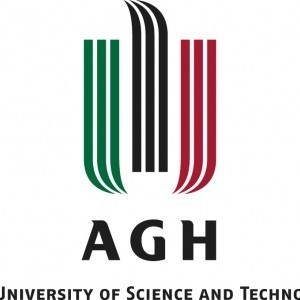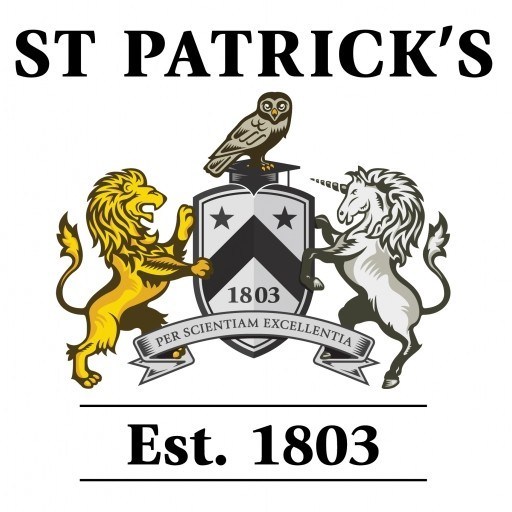Photos of university / #monash_uni
The Bachelor of Networks and Security at Monash University is an innovative undergraduate program designed to equip students with comprehensive knowledge and practical skills in the rapidly evolving fields of computer networks, cybersecurity, and information security management. This degree provides students with a strong foundation in the principles of computer networking, network design and implementation, cryptography, digital forensics, and threat mitigation strategies. Throughout the course, students will explore the latest technologies and techniques used to protect data and ensure the integrity, confidentiality, and availability of digital information in various organizational environments. The program combines theoretical understanding with hands-on practical experience, utilizing state-of-the-art laboratories and industry-standard tools to prepare graduates for the dynamic cybersecurity landscape. Students will learn how to analyze security risks, develop robust security protocols, and implement effective security policies within complex networked systems. Additionally, the program offers specializations and electives that allow students to tailor their learning towards areas such as ethical hacking, penetration testing, security architecture, and disaster recovery planning. With a curriculum developed in collaboration with industry partners and experts, graduates will be prepared to pursue careers in cybersecurity consultancy, network management, security analysis, and incident response. The degree emphasizes critical thinking, problem-solving, and ethical responsibility, ensuring students are well-equipped to contribute to the safety and resilience of digital infrastructure in a variety of sectors including government, finance, healthcare, and technology. Upon completion, students will have the skills needed to respond to advanced security threats and develop innovative solutions to protect vital digital assets, making them highly valuable in the rapidly expanding cybersecurity job market.
The course is structured in three parts: Part A. Foundations for advanced networks and security studies, Part B. Core master's study, and Part C. Advanced practice. All students complete Part B. Depending upon prior qualifications, you may receive credit for Part A or Part C, or a combination of the two.
Note that if you are eligible for credit for prior studies you may elect not to receive the credit.
Part A. Foundations for advanced networks and security studies
These studies will provide an orientation to the field of networks and security at graduate level. They are intended for students whose previous qualification is not in a cognate field.
Part B. Core master's study
These studies draw on best practices within the broad realm of IT networks and security theory and practice. You will gain an understanding of information and computer security and IT project management principles. Your study will focus on your choice of units within networks and security.
Part C. Advanced practice
The focus of these studies is professional or scholarly work that can contribute to a portfolio of professional development. You have two options:
- a research pathway including a thesis. Students wishing to use this master's course as a pathway to a higher degree by research should take this first option.
- a program of coursework involving advanced study and an industry experience studio project.
Students admitted to the course, who have a recognised honours degree in a discipline cognate to networks and security, will receive credit for Part C, however, should they wish to complete a 24 point research project as part of the course they should consult with the course coordinator.
Requirements
The course comprises 96 points structured into three parts: Part A. Foundations for advanced networks and security studies (24 points), Part B. Core master's study (48 points) and Part C. Advanced application (24 points).
- Students admitted at entry level 1 complete 96 points, comprising Part A, Part B and Part C.
- Students admitted at entry level 2 complete 72 points, comprising Part B and Part C, or Part A and Part B.
- Students admitted at entry level 3 complete 48 points, comprising Part B.
Note: Students eligible for credit for prior studies may elect not to receive the credit and complete one of the higher credit-point options.
Units are 6 credit points unless otherwise stated.
Part A. Foundations for advanced networks and security studies (24 points)
Students complete:
a. four units (24 points):
- FIT9131 Programming foundations in Java or FIT9133 Programming foundations in Python
- FIT9132 Introduction to databases
- FIT9134 Computer architecture and operating systems
- FIT9135 Data communications
Part B. Core master's study (48 points)
Students complete a., b. and c.
a. two units (12 points):
- FIT5057 Project management
- FIT5163 Information and computer security
b. two units from the networks stream and two units from the security stream (24 points) below:
Networks
- FIT5010 Network protocol standards
- FIT5011 Network design and performance
- FIT5034 Quality of service and network management
- FIT5083 Network infrastructure
Security
- FIT5003 Software security
- FIT5037 Network security
- FIT5124 Advanced topics in security
- FIT5129 Enterprise IT security - planning, operations and management
c. two units (12 points) from one of the following options:
- Part B, b.
- one unit (6 points) from Part B, b. and one additional FIT-coded level 5 unit (6 points)
Part C. Advanced practice (24 points)
Students complete a. or b. below:
a. Minor thesis research:*
- FIT5125 IT research methods
- FIT5126 Masters thesis part 1
- FIT5127 Masters thesis part 2
- FIT5128 Masters thesis final
* To enrol in the research units, students must have successfully completed 24 points of level five FIT-coded units and have achieved an overall average of at least 75 per cent across all these units.
b. Industry experience:
- FIT5120 Industry experience studio project (12 points)
- FIT5122 Professional practice
- FIT5136 Software engineering
Qualifications
|
Entry level 1: Duration: 2 years full-time, 4 years part-time (96 points to complete) An Australian undergraduate degree not necessarily in IT, with at least a 55% average, or qualification deemed by the faculty to be a satisfactory equivalent. |
|
Entry level 2: Duration: 1.5 years full-time, 3 years part-time (72 points to complete) An Australian undergraduate degree in a cognate discipline including computing, computer science, software engineering, computer systems, electrical, electronic or communication engineering with at least a 55% average, or qualification deemed by the faculty to be a satisfactory equivalent. |
English entry requirements
Minimum English language requirement for Monash University
IELTS 6.5 (no band lower than 6.0) or equivalent approved English test as defined in the Admission to Coursework Courses and Units of Study Procedures.
The Bachelor of Networks and Security at Monash University offers a range of financing options to support students throughout their studies. Domestic students may be eligible for government funding schemes such as the Commonwealth Supported Place (CSP), which significantly reduces the tuition fees, making higher education more accessible. Eligibility for CSPs is generally based on citizenship or visa status, with Australian citizens, permanent residents, and certain New Zealand citizens qualifying for subsidized places. Additionally, students may access a range of government loans, such as the Higher Education Loan Program (HELP), which allows students to defer upfront tuition costs and repay via the tax system once earning above a certain threshold.
International students are required to pay full tuition fees, which vary depending on the specific program and mode of study. These fees are payable per annum and are subject to annual increases; precise figures can be obtained from the university’s official fee schedule. To assist international students, Monash University offers various scholarships, prizes, and bursaries, some of which are specifically targeted at students undertaking studies in Networks and Security or related fields. These awards can provide partial or full fee remission, living stipends, or other support measures.
Students are also encouraged to seek external scholarships and financial aid from government, industry, or private sources, which can supplement university funding and reduce the overall cost of education. Additionally, employment options such as part-time work during studies are available for domestic and international students, with the university's campus locations providing convenient opportunities for employment. The university provides guidance services to help students navigate financial planning, access scholarships, and understand repayment obligations. Overall, Monash University is committed to ensuring that financing options are diverse and accessible to support students pursuing a Degree in Networks and Security, enabling them to focus on their educational goals without undue financial stress.
The Bachelor of Networks and Security at Monash University is a comprehensive undergraduate degree designed to equip students with critical skills and knowledge in the fields of computer networks, cybersecurity, and information security. The program covers a wide range of topics including networking fundamentals, network management, cyber threats, cryptography, and secure system design. Students learn to design, implement, and manage complex networked systems, ensuring data integrity, confidentiality, and availability. The curriculum combines theoretical concepts with practical applications, enabling students to develop hands-on skills through labs, projects, and industry placements.
Throughout the course, students gain expertise in network protocols, network infrastructure, and emerging technologies such as cloud computing and the Internet of Things (IoT). They also explore the legal, ethical, and societal implications of cybersecurity, preparing them for diverse roles in the technology sector. The program emphasizes problem-solving, analytical thinking, and innovation, preparing graduates for careers in network security, cybersecurity consulting, system administration, and information assurance.
Monash University’s strong industry links and collaborations with technology companies ensure students have access to current tools and real-world experience. With a focus on up-to-date security practices and technological advancements, the degree aims to produce graduates capable of safeguarding digital assets in an increasingly connected world. The program also provides pathways for further research or postgraduate study, including options for Honours and master’s programs in network security and related fields. Overall, the Bachelor of Networks and Security is designed to produce highly skilled professionals ready to meet the demands of the cybersecurity industry and contribute to the development of secure and resilient networked systems globally.










